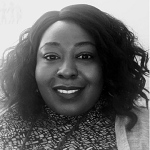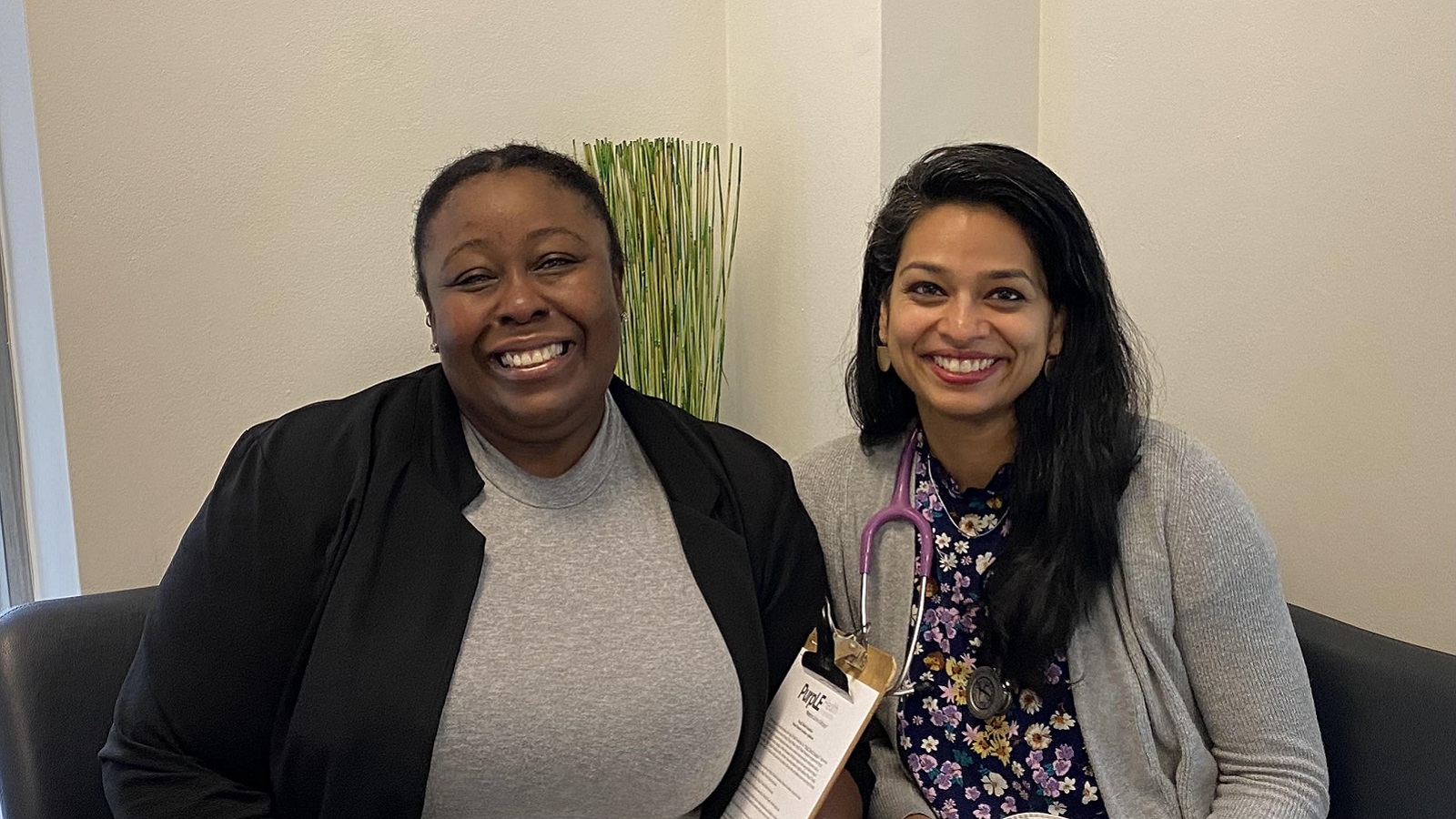PurpLE Health Foundation is a non-profit organization in New York City, which invests in the physical, mental, and financial health of survivors of gender-based violence. PurpLE Health Foundation’s signature program is its collaboration with PurpLE Family Health, an affiliated medical practice that utilizes a novel model of trauma-informed, holistic health care for survivors of gender-based violence, and their children.
A critical component of PurpLE’s design from the very beginning is that it is survivor-informed. PurpLE Health Foundation was created in 2019 based on pilot work from the PurpLE Clinic—a program that provided primary care for survivors of human trafficking and other forms of abuse and exploitation, within a community health center. The PurpLE Clinic was founded in 2015 by Family Medicine Physician, Dr. Anita Ravi (PurpLE Health Foundation’s eventual co-founder and CEO), and was designed based on feedback from key community stakeholders, including survivors of human trafficking. Lessons learned from the four-year pilot program led to the creation of PurpLE Health Foundation and PurpLE Family Health. This also led to the continuation of a meaningful relationship between Dr. Anita Ravi and Survivor Leader Keisha Walcott—a former PurpLE Clinic patient who went on to become a Founding Board Member of the PurpLE Health Foundation.
This is Keisha’s PurpLE journey:
I am a woman. An Afro-Caribbean immigrant. A mother, sister, aunt, and friend. When I look into the mirror, I see all of these women in me. I’ve experienced being all of the above. Throughout the years I’ve been labeled as strong in each role, at some time or another, and to be honest, I kind of like being labeled with such a powerful adjective. Immigrant, Alien, Victim, Survivor, Patient—all of these labels are also true. I’ve had some adversities and a few hurdles—I still do—but I try to not let them define me.
I met Anita during an incredibly difficult time in my life. I was facing several challenges with my health, navigating various systems as an undocumented immigrant, all while in a toxic marriage. The stars aligned one day while I was at legal aid. My lawyer asked me about my most immediate need, and I said that I had urgent health issues that I needed to address. She gave me the number to PurpLE Clinic, and to my shock, the clinic’s doctor, Anita, actually answered the phone when I called. We set up an appointment, and that was the beginning of our story.
At that first appointment, Anita spent time truly listening to me. We talked about my history of human trafficking and domestic abuse, the challenges of being undocumented and how those were barriers to accessing care. I left that appointment feeling like I was heard for the first time… I left feeling like this is the way health care should be, and I left knowing that I wanted to be a part of it. I wanted to make sure that more people knew this existed.
For the first time, going to the doctor wasn’t scary—instead, it was a welcome retreat. It became my escape. As I received the medical care I needed, I was simultaneously making other changes. I left my marriage, I was taking classes through a local empowerment program, and I was working on obtaining legal status. Through the empowerment program, I received a stipend that allowed me to do an internship at an organization to gain on-the-job training. There was no doubt in my mind, I knew where I wanted to intern. I contacted Anita, and I soon became PurpLE Clinic’s first survivor leader, working as a care navigator.
Shortly after I began working at the clinic, Anita decided to wrap-up the PurpLE Clinic pilot. She recognized that there were ways the clinic was limited in caring for survivors and wanted to build a new practice, a better practice, that could meet survivors’ needs in trauma-informed and holistic ways. I knew immediately that I wanted to build it with her.
I started out as a Founding Board Member at PurpLE Health Foundation. As we began planning what PurpLE Health Foundation would be, we all agreed that including survivors in the planning process was crucial. If we don’t truly understand what the patients need, then we aren’t providing proper care. My experiences offered foresight into barriers that the survivor community faces when accessing care, so we were able to plan around those barriers from the start.
Through grants and other support that was offered to me by PurpLE Health Foundation, I was able to grow in my financial health journey. During the COVID-19 pandemic, I lost work authorization and ultimately decided to start a consulting business. With help from PurpLE Health Foundation’s financial health initiatives, I was able to register an LLC in the state of New York, which allowed me to be self-employed, preventing the need to rely on governmental systems to cover my household costs during this particular period of time. I know this may sound like a simple thing to many people, but for some families that must navigate social service systems and suffer shame and ridicule while suffering from trauma, PurpLE Health Foundation’s financial health program made a huge difference. This was an amazing triumph for me.
I currently serve as the Survivor Leader and Care Navigator at PurpLE Family Health. In my role, I help patients navigate the health care system. When survivors are managing post-traumatic stress disorder (PTSD), dealing with long-term health effects of past abuse, or are currently in a traumatic situation, it is very common to struggle with issues related to time management and forgetfulness. Some days it’s hard enough just to survive, let alone schedule a follow-up visit with a cardiologist. It helps patients to know that they have someone to help them get things done on days when they can’t… that they have a sister to help them along, and they are not alone.
At PurpLE Health Foundation, everything is an experiment because no one gets it right all the time. We are always trying to do better. We hold ourselves accountable, and we hold each other accountable too. We check-in with each other and brainstorm ways we could be doing better. We come from very different backgrounds and cultures, and all ideas are respected. Our collaborative partnership allows us to be free, to exchange ideas and not feel afraid, ashamed, or like someone is going to say you’re wrong. We listen and engage with our patients, and we provide extra help to get them to where they need to be. We also listen and engage with each other. That’s what makes this team great.
I want other survivors to know that they have a voice too. I want to help create a safe space for survivors, to help survivors find their voices and use them. I want to encourage survivors to use whatever platforms and skills they have available to raise awareness and be part of the movement… it’s only going to get bigger, and we’re making sure that it’s getting better!
** Feature photo provided and used with permission from author Keisha Walcott & the PurpLE Health Foundation. This photo depicts Keisha Walcott & Dr. Anita Ravi at PurpLE Family Health.
Interested in other articles like this? Subscribe to our monthly newsletter
Interested in contributing to the Primary Care Review? Review our submission guidelines

Keisha Walcott is a first-generation immigrant who was trafficked to the United States in her early childhood. She is a survivor leader, advocate, and volunteer. She is a Founding Board Member at PurpLE Health Foundation in New York City, and she takes pride in helping her peers work through the adversity of trafficking.
- Share
-
Permalink



